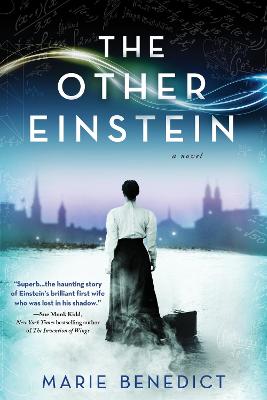Reviewed by Beth C. on
Never having heard of Mileva, it was interesting to read her story and to come to understand that she is *still* believed by some scientists to have been been pivotal in Albert's work. Bearing in mind what the author said, that the book stays as close to fact as possible, while still needing some element of fiction to flesh things out, I quite admired Mileva's courage, particularly considering the role she would have been expected to play as a woman in that society. The story is not one that will having a reader racing through the pages with heart-pounding excitement, but it is a very thoughtful book that is evenly paced and just tells a very good story.
Benedict fleshes out the characters quite well, helped along by her immense research and the trove of letters available online (which she mentions in the Author's Note section, helping the reader to find them as well). Neither Albert nor Mileva were all bad or all good, they were just human, and humans have strengths and weaknesses. Benedict was able to take those strengths and weaknesses and allow those people on the page to feel real, as though the reader might actually have met them while getting a cup of coffee.
Overall, I was happily surprised by how much I enjoyed this book, and also - how eye-opening it was. Again - there is certainly some fiction, but since so much of what is written is based on fact, it is unlikely that even the fiction went too far astray. I would certainly recommend this book, as well as those recommended by the author in her notes.
Reading updates
- Started reading
- 25 November, 2016: Finished reading
- 25 November, 2016: Reviewed
